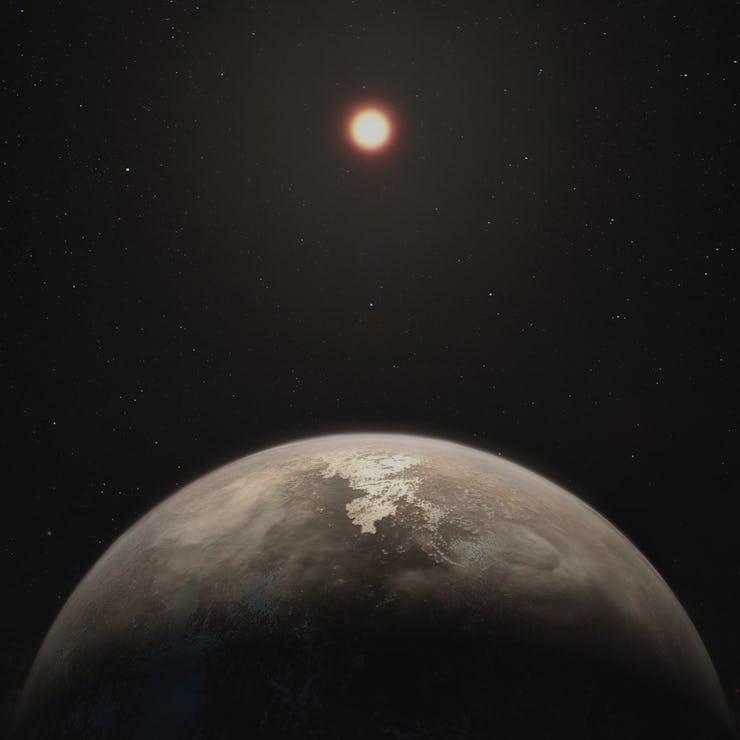This Temperate Planet Could Be a Better Prospect for Life Than Proxima B

Right now, astrobiology nerds are divided into two different fandoms when it comes to the best exoplanet(s): the TRAPPIST-1 system versus Proxima b. While Proxima b is definitely closer to Earth, a newly discovered exoplanet gives both TRAPPer Keepers (the unofficial TRAPPIST-1 fandom) and Proxima b enthusiasts some serious competition.
Using the High Accuracy Radial velocity Planet Searcher (HARPS) at La Silla Observatory in Chile, researchers at the European Southern Observatory (ESO) have discovered that a red dwarf star — Ross 128 — has an Earth-sized world orbiting around it. The team believes the planet — Ross 128b — has a surface temperature that “may be close to that of Earth.” However, it’s still unclear where the planet lies in relation to the habitable zone, or the region in which a planet could support liquid water. A paper detailing the discovery will appear in Astronomy and Astrophysics.
The discovery is exciting for a few reasons. For one thing, according to the ESO, “Ross 128 is the ‘quietest’ nearby star to host such a temperate exoplanet,” which means its red dwarf star doesn’t throw off a ton of deadly radiation. This is one of the main reasons scientists are wary about Proxima b’s ability to host life; its star emits so much ultraviolet and X-ray radiation that it might render the planet lifeless. A “quieter” star-like Ross 128 might be more suitable for supporting life on this newly discovered exoplanet.
It’s also worth noting that Ross 128b is expected to snatch Proxima b of its title as closest exoplanet to Earth. Though it’s currently 11 light-years from Earth, its star is expected to become our “nearest stellar neighbor in 79,000 years,” the ESO reports. Take that, Proxima b stans!
When it’s completed, ESO’s Extremely Large Telescope will scope out Ross 128 for more information. For now, we welcome a new exoplanet into the fandom wars — be nice, everyone.